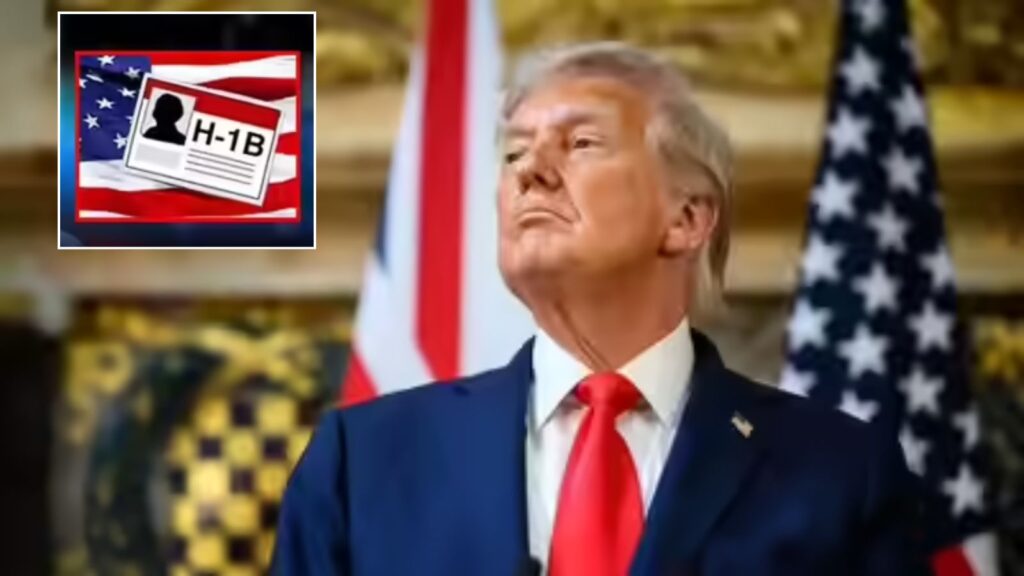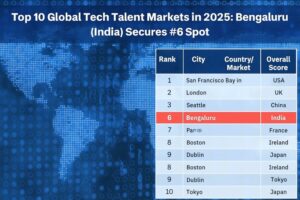H-1B Visa Overhaul: $100,000 Fee Sparks Fears of Job Loss for Indian Tech Workers in the U.S.

H-1B Visa Overhaul: $100,000 Fee Sparks Fears of Job Loss for Indian Tech Workers in the U.S.
A major change is coming for foreign professionals seeking to work in the United States. Former U.S. President Donald Trump has announced a new rule for the H-1B visa program, imposing a mandatory annual sponsorship fee of $100,000 (around ₹88 lakh) per visa application. The move is expected to particularly affect Indian tech talent, which forms the largest group of H-1B visa holders in the U.S.
Trump framed the decision as a win for American tech companies, saying it would encourage firms to hire only the most essential foreign workers. “I think the tech industry will be happy with this decision,” he said during the announcement.
White House Staff Secretary Will Scharf explained that the change responds to widespread misuse of the H-1B program. He said the visa was originally intended for highly specialized talent, not for roles that could easily be filled by American workers, and that stricter rules are now needed.
Launched in 1990, the H-1B program was meant to help U.S. companies fill positions requiring advanced knowledge in science, technology, and engineering. Over the years, critics argue, some firms have used it as a way to reduce costs by hiring overseas workers for routine jobs that could be done by domestic employees.
Previously, the cost for employers was relatively low—$215 for registration and roughly $780 for processing—allowing large IT consulting firms to submit thousands of applications each year. With the new $100,000 fee, employers are expected to become far more selective, likely reserving sponsorships for candidates with unique expertise or hard-to-fill roles.
While major tech giants may absorb the cost, smaller companies and startups could struggle, potentially limiting their ability to hire critical foreign talent. This change may widen the gap between large corporations and smaller, innovation-driven firms that rely on global expertise.
Indian professionals are likely to feel the impact most. Major Indian IT companies, including Infosys, Tata Consultancy Services, Wipro, HCL, and Cognizant, send thousands of engineers to the U.S. each year. At the same time, American tech firms like Google, Amazon, Microsoft, Apple, and Meta depend heavily on skilled Indian workers, especially in California, which hosts the highest number of H-1B employees.
The H-1B program has long faced criticism over salary differences. American tech workers typically earn over $100,000 annually, while many H-1B employees are hired at wages closer to $60,000. Critics argue this practice allows companies to reduce labor costs at the expense of domestic workers. The Trump administration believes the new fee will discourage such practices and create a fairer environment for U.S. professionals.












